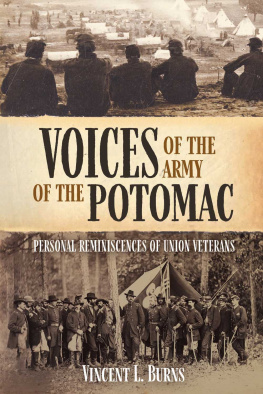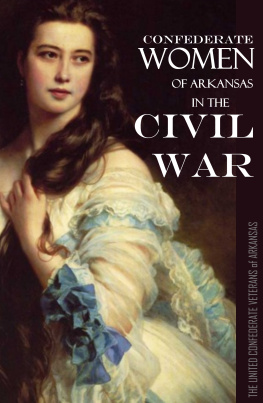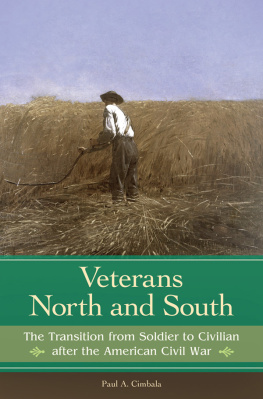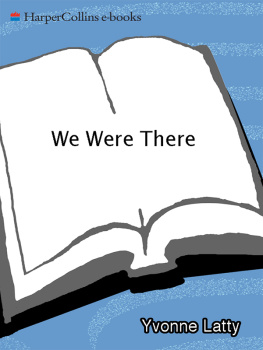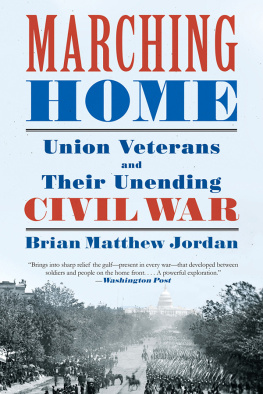


Published in the United States of America and Great Britain in 2021 by
CASEMATE PUBLISHERS
1950 Lawrence Road, Havertown, PA 19083, USA
and
The Old Music Hall, 106108 Cowley Road, Oxford OX4 1JE, UK
Copyright 2021 Vincent L. Burns
Hardcover Edition: ISBN 978-1-63624-072-5
Digital Edition: ISBN 978-1-63624-073-2
A CIP record for this book is available from the British Library
All rights reserved. No part of this book may be reproduced or transmitted in any form or by any means, electronic or mechanical including photocopying, recording or by any information storage and retrieval system, without permission from the publisher in writing.
Printed and bound in the United States by Integrated Books International
Typeset in India by Lapiz Digital Services, Chennai.
For a complete list of Casemate titles, please contact:
CASEMATE PUBLISHERS (US)
Telephone (610) 853-9131
Fax (610) 853-9146
Email:
www.casematepublishers.com
CASEMATE PUBLISHERS (UK)
Telephone (01865) 241249
Email:
www.casematepublishers.co.uk
F OR
Macsen Jeffrey Rogers
History!
It hasnt happened yet.
Contents
Foreword
The Civil War thrust ordinary men into extraordinary circumstances. Even those Americans who prophesied a long, deadly struggle to suppress the southern slaveholders rebellion were altogether unprepared for the grisly scenes visited upon the nation between 1861 and 1865. In the space of four years, some 750,000, menor nearly three percent of the populationwould be killed. Many more would be maimed, diseased, or unnerved. Peach orchards became killing fields; hay mows became crowded hospital wards. In twelve brutal hours at Antietam, the war added more men to the casualty registers than had been lost in the entire U.S. War with Mexico.
Well before the muskets fell silent, drawing authority from all that they had seen, felt, and experienced, Union soldiers named themselves the rightful custodians of the Civil Wars history. Soldiers supplied anxious families and civilian newspapers back home with some of the first accounts of the war. But the challenge of translating the muddle and chaos of war into clear and orderly prose proved immense. Narratives begun on patriotic stationery not infrequently lost their momentum, devolving into anguished tallies of friends and neighbors wounded and missing. In these letters, men rummaged for imperfect metaphors. Some simply attempted to catalog the wars auditory elements, believing that battles soundscapethe crackle of musketry, the hiss of a shell, the shrill bay called the rebel yellbest conveyed its otherworldliness. Their eloquence and erudition aside, however, U.S. veterans frequently conceded their inability to render an adequate picture of combat.
Soldiers contemplated but could never completely comprehend the wars enormous scope and scale. By mounding earth into miles of entrenchments, muscling logs onto corduroy roads, and marching for miles across starkly militarized landscapes, they acquired a sense of the wars magnitude. Fighting in an army amply stocked with ethnic Germans, Irish immigrants, and old Yankeesherded into brigades that embraced Massachusetts mill workers and Pennsylvania coal minersthey looked beyond the parochial confines of their hometowns and communities (some, perhaps, for the first time) and cultivated an appreciation for the war as a national mobilization. The Army of the Potomac not only defended but embodied the Union. But again, how to reckon with all that the war had wrought in their lives? How best to preserve their personal experiences amid the proliferation of national narratives that threatened to efface their individuality? How to explain what they felt at Gettysburg, saw at Spotsylvania, and smelled at Petersburg? How to preserve the wars signal accomplishments alongside its enormous human costs?
Though most federal soldiers identified with precision what was at stake in the conflictthe fate of human slavery in the United States and the future of self-governmentthey yearned to understand how their performances on distant battlefields and remote picket lines wove into the wars larger tapestry. As veterans, they became the wars first, true historiansamassing large, personal libraries of personal accounts and official reports; preparing papers for regimental reunions and Grand Army campfires; consulting with former comrades to stimulate memories or confirm niggling details; collecting and displaying battlefield relics; supporting pension claims; serving on state monument commissions; and making pilgrimages back to the old killing fields. The energy and industry with which they took up this work is not merely an important index of how the war continued to occupy their minds, but a measure of their earnest desire for a complete, accurate, and honest history of the conflict. They needed to explain the war not only to future generations, but to themselves.
***
In the more than a century and a half since the war, troop movements have proved far easier to map than the wars human topography. For too long, our understanding of the Civil War as an epic, historical event has eclipsed our appreciation of it as a lived, human experiencean ordeal in which men whipsawed between hope and heartbreak, pain and pride, cynicism and conviction. For the men who suffered, sacrificed, and survived the war, its outcome was never certain; even in the months and years immediately after Appomattox, as white supremacist terrorists made a mockery of the freedom seized under fire by the formerly enslaved, the fate of Union victory remained unclear.
Quarrying the huge corpus of writing left behind by the Unions principal eastern field army, author Vincent L. Burns amplifies the voices of some men who, after battling to save the republic, joined the yet ongoing struggle to shape the wars historical memory. What emerges in the pages that follow is a multivocal account of life in the Army of the Potomac. The author asks us to read with care the words that Lincolns legions left behindnot for what they reveal about tactics and strategy, but because they supply insight into the messy, nonlinear process by which events pass into history.
Brian Matthew Jordan
Authors Note
This is not a history of the Army of the Potomac, or any particular battle fought or campaign waged. Humbly submitted, the concern here is what these men from long ago wrote down in letters and diaries as they experienced the historic event that was the Civil War. Also, this concerns what they later rememberedor chose to rememberand then wrote in remembrances as the years passed and they grew older. It is in part an overview of the decades following the war as its veterans brought pen and paper together and left us their story.
As historian David W. Blight noted in Race and Reunion: The Civil War in American Memory (), No other historical experience in America has given rise to such a massive collection of personal narrative literature written by ordinary people. This massive collection of memoirs, recollections, regimental histories and remembrances makes up our history of the Civil War seen through the memory of the participants. These writings contain their views on cataclysmic events, their perceptions and thinking as they lived them and later spoke of them in written form. It was important to them and whether their words align with the historical record is secondary to what they believed true and chose to submit as history. In an age of increased literacy, many of these men were educated, whether at West Point, Harvard or places in between. Some were not so. Some filled their pages with flowered phrases while others expressed themselves in clear, concise English. But all had something to say that, again, was important to them, as it should be with those seeking a deeper, more precise understanding of the men of that central moment in American life.
Next page
